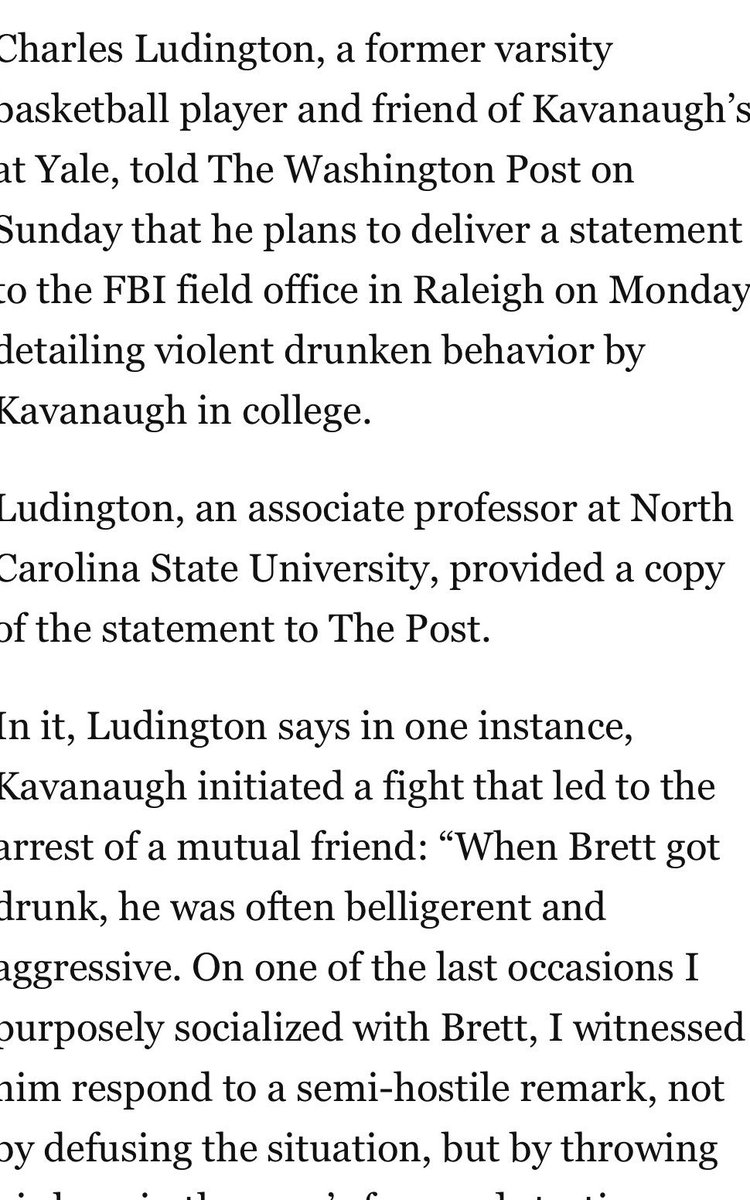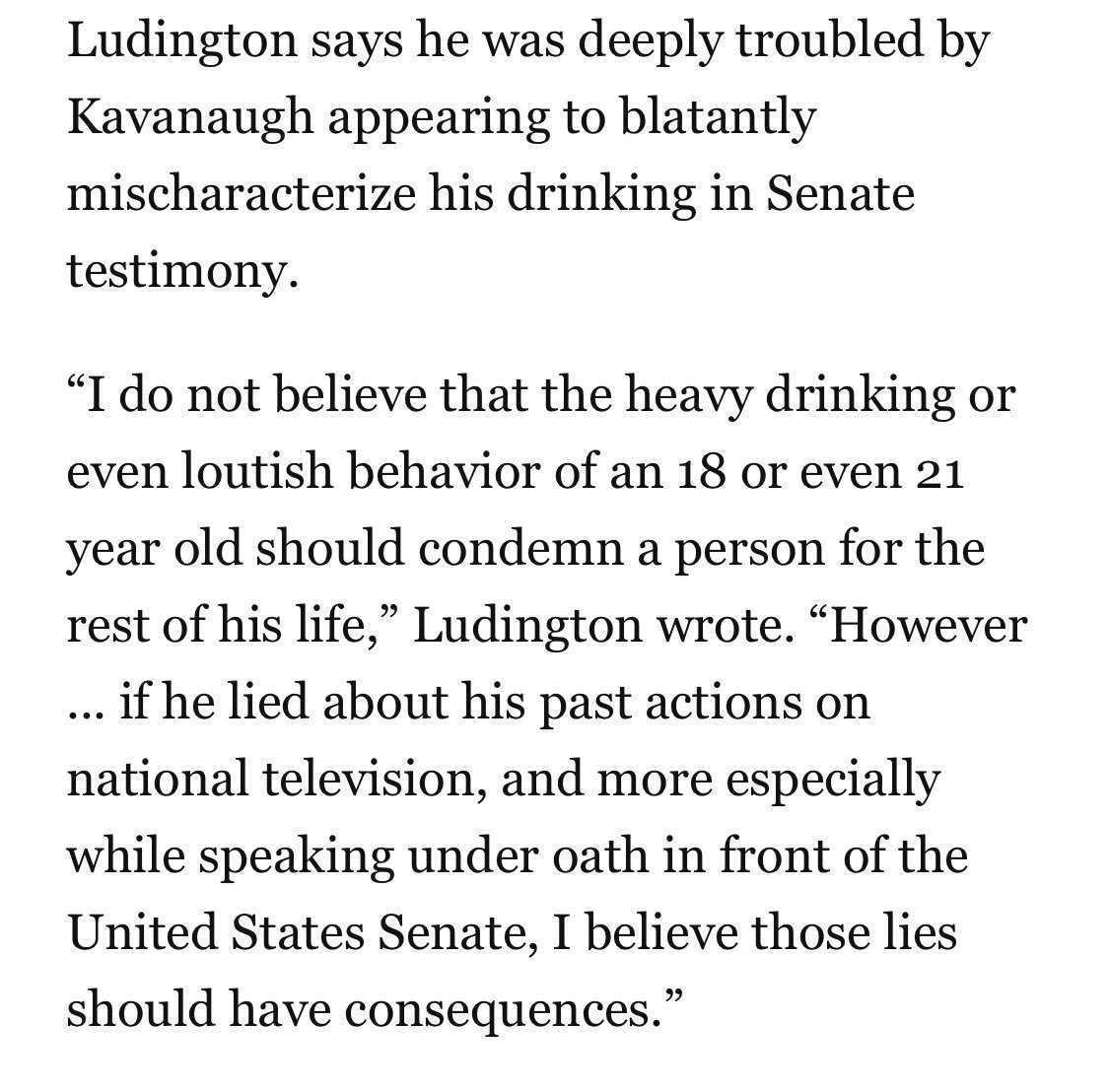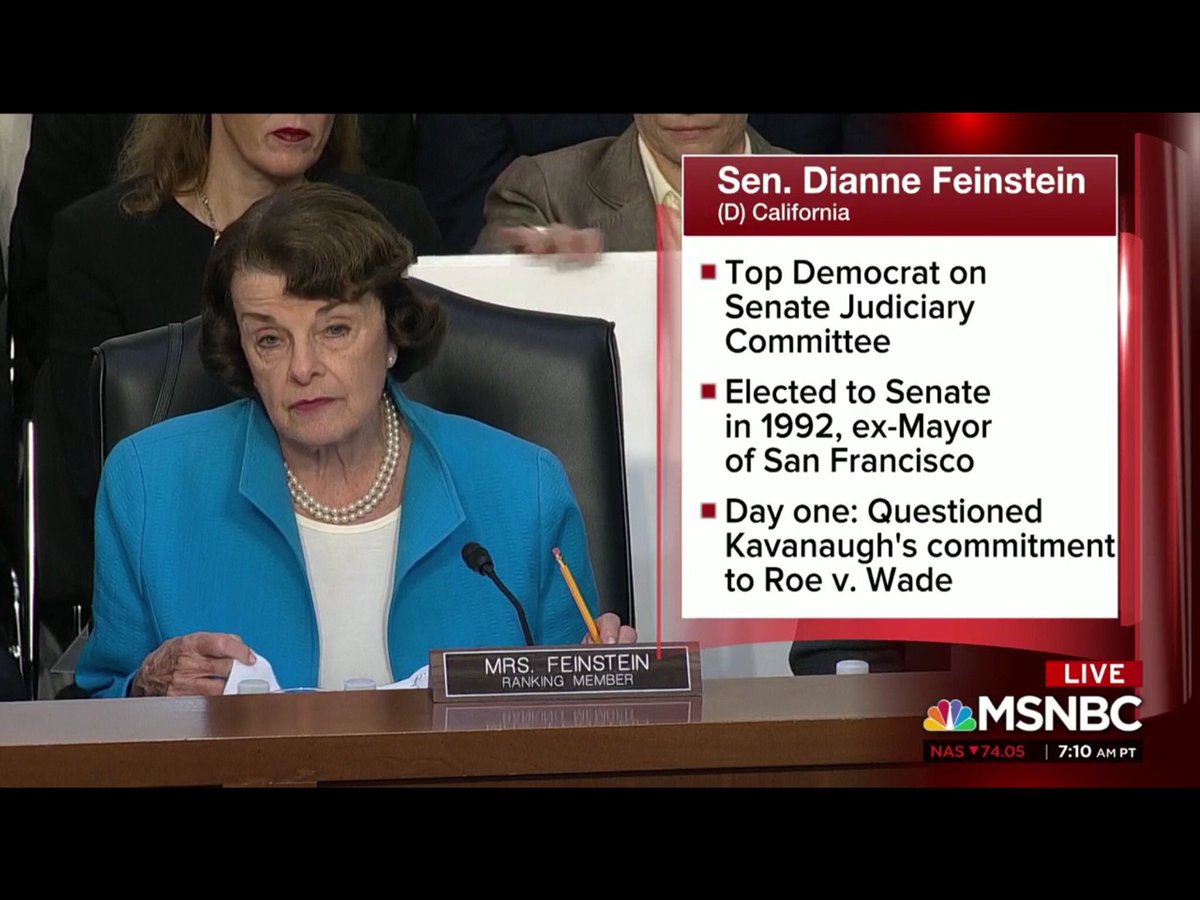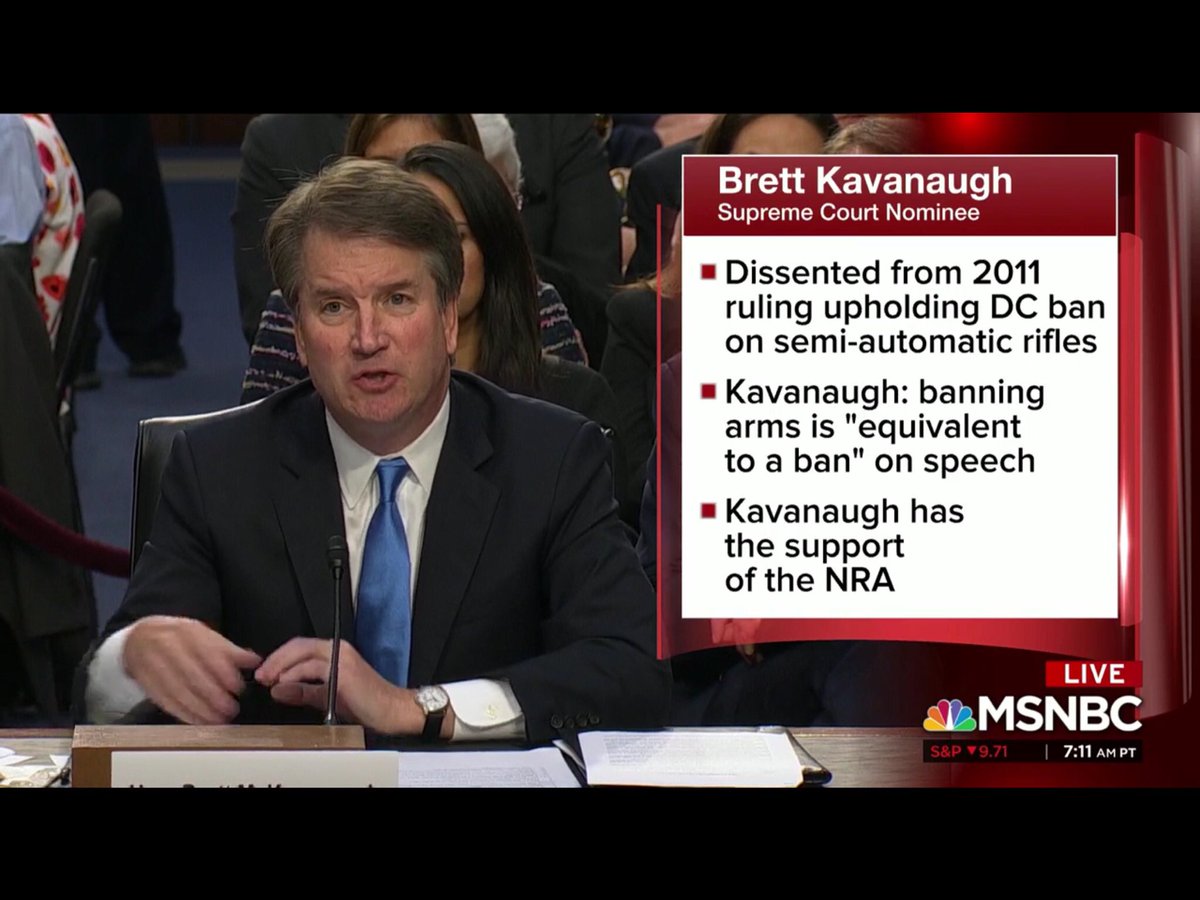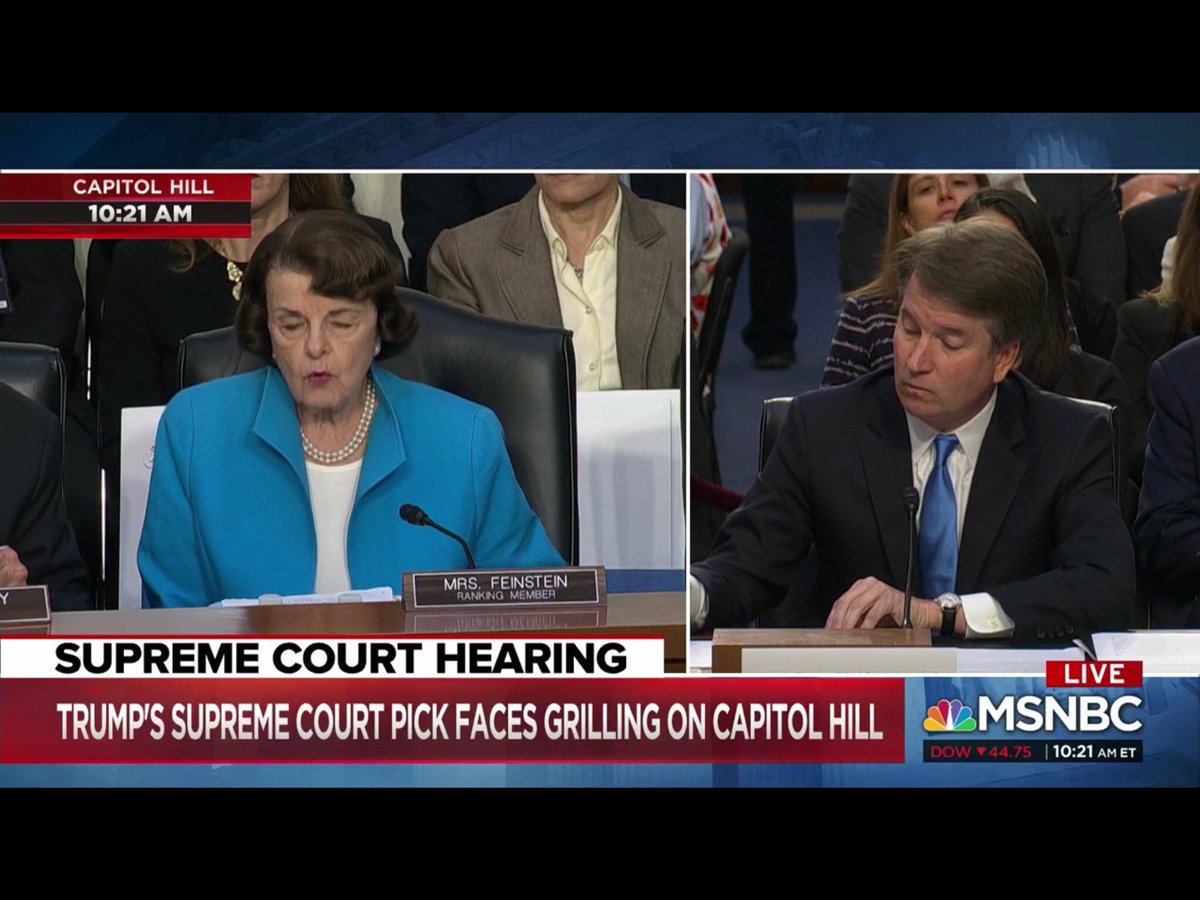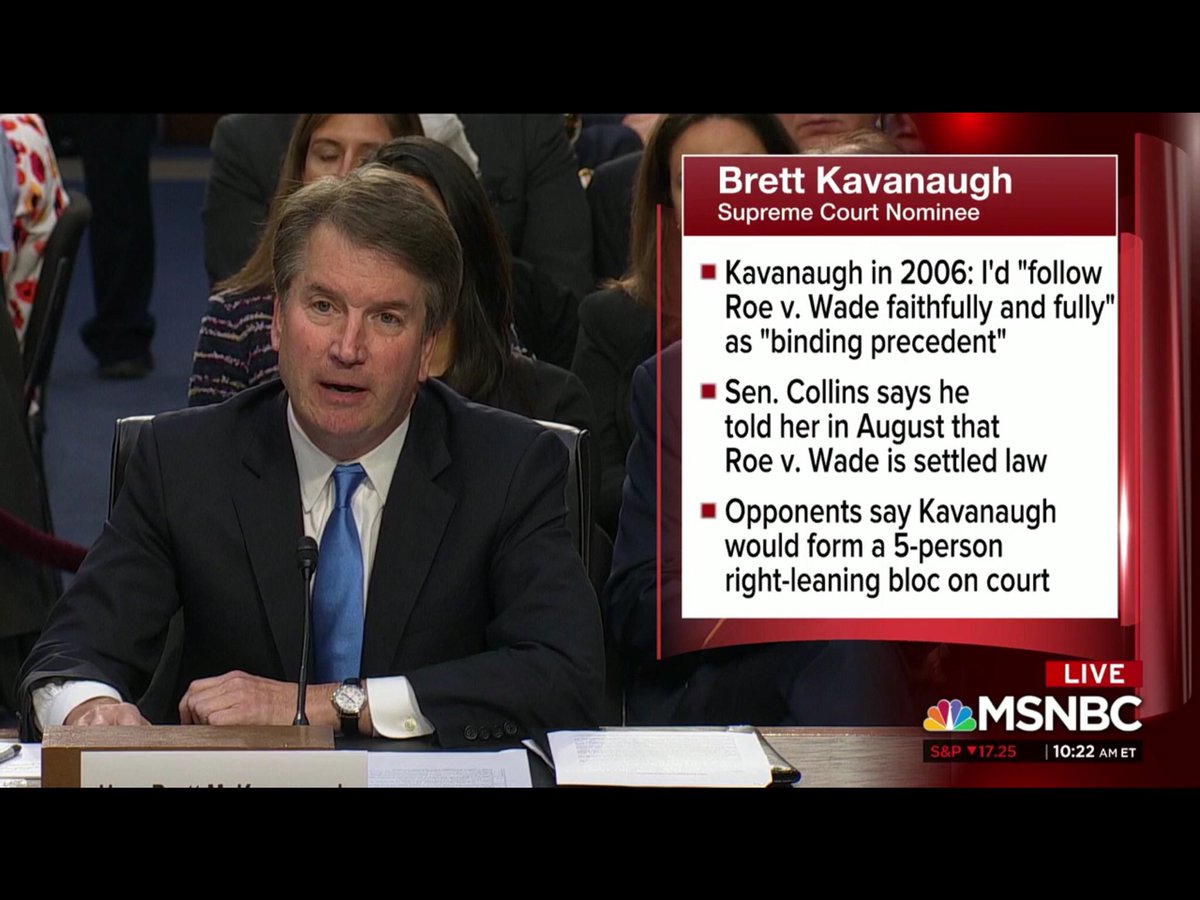How could he be SOOOO BAD, right?
I'll tell you how he could be so bad. Because "Judge Kavanaugh"...
1/
Yeah, he has a Bar card. Yeah, he wears a black robe.
But here is a question that no Senator asked but I wish one had...
2/
Would you believe me that the answer is likely way lower than his age at the time when Dr. Ford alleges he assaulted her?
Well... it definitely is. Lemme explain.
3/
From there he went directly to a clerkship with Judge Walter King Stapleton on the U.S. Court of Appeals for the Third Circuit.
Before going further, a critical note.
4/
They do not hear from witnesses.
They do not receive evidence.
They hear argument from lawyers and base their rulings on those arguments and the record of the underlying trial.
That's it.
5/
But it is not a "court" like you've seen on every show from Perry Mason to L.A. Law to Damages.
6/
So, he's clerking at the 3d Circuit. Now, clerks have incomparable access & influence. Many judges hire based on from whom they would want that input. They often are very involved with decision drafting, too.
7/
In any event, NO TRIALS at that job.
8/
Judge Alex Kozinski at the 9th Circuit.
I won't belabor that whole thing here, but if you didn't know, Kozinski was removed from the bench for... improper sexual conduct.
9/
So, first 2 jobs. No trials. no witnesses. No evidentiary role.
After not being offered a clerkship with Justice Rehnquist, Brett got a 1 year internship with... Ken Starr.
10/
Why a 1 year internship, you ask?
Because 1 year later, that's where Brett headed... as a clerk to Justice Kennedy.
11/
And that's where Brett stayed for 2 years until he went back to work for... Ken Starr from '94-'97.
12/
In that role, he was little more than in his 3rd clerking position and now...
13/
Zero trials.
As would be expected, he next went to the white collar firm of Kirkland & Ellis. He seemed to like his Torquemada position more, and about a year later was back with Starr.
14/
He lost.
But back to the point... NOT A TRIAL.
15/
And here's where we MAY have what could MAYBE be referred to as Brett's first trial work.
16/
This case worked its way through trial courts but there's not much record of Brett's role.
17/
So that's 1 "trial."
Oh, his clients lost, btw.
18/
It goes without saying, as non-parties, they are not in the trials.
19/
Hey, Brett's client won one!
But in any event, NO TRIALS.
20/
Needless to say, in these times... NO TRIALS.
21/
22/
I know it was a while back, but remember when I mentioned that appeals courts are not trial courts?
23/
Brett wasn't.
24/
All of it.
So, to the original question of "how could such an experienced Judge be such a bad witness?"...
It's because "experience" is not universal for attorneys.
25/
It was amateur.
It was theater.
It was not that of a seasoned attorney.
26/
Because someone who will sit on the highest court in the land for the rest of their life SHOULD possess even this base-level knowledge.
27/
He entire career prepared him, not to evaluate facts, witnesses, or evidence...
28/
He's entitled.
He's had a career of entitlement.
That's not the model for a Justice of the Supreme Court of the United States.
A few replies pointing out trial experience of other sitting Justices, or lack thereof.
How'd those other justices do when they testified?
The thread is not "Why Brett Would Be a _______ Justice" but rather just thoughts on "Why Brett Was A God-Awful Witness."

